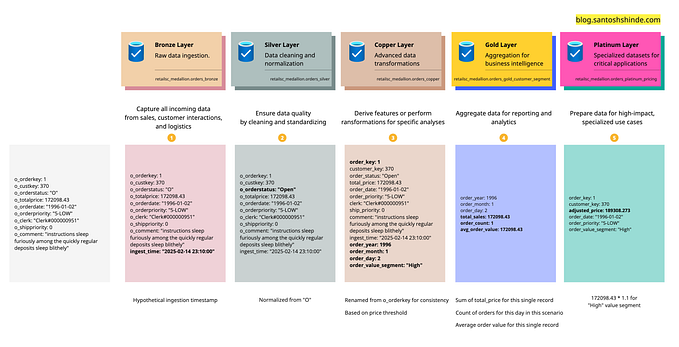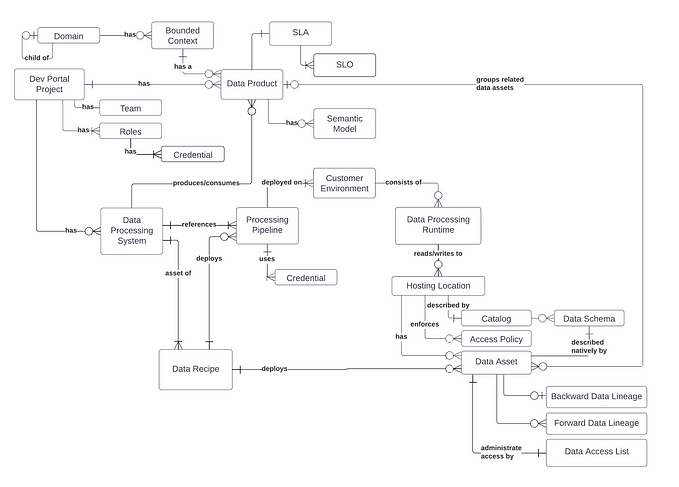
*By Phillip Ayazika and Tricia Gloria Nabaye
Introduction:
The realm of data governance presents significant challenges related to power, control, and benefit. In Uganda, embracing “participatory” data governance can enhance policy implementation and support the nation’s pursuit of social justice. However, several obstacles impede this progress, including power imbalances between data controllers and data subjects, fragmented data, isolated efforts, and undervaluation and de-prioritisation of data.
In this blog post, we delve into the imbalances and implications inherent in the data economy. From unequal access and iniquitous decision-making power to the loss of control over personal information, these challenges shape the landscape of data governance. The blog thoroughly examines the power dynamics at play, explores the implications of control deprivation, and critically assesses the distribution of benefits within the data economy. Additionally, we explore the importance of data governance in advancing economic empowerment and civic participation, offering key findings, recommendations, and opportunities for improvement.
Understanding the Challenges:
As the world becomes increasingly data-driven, with individuals’ digital lives transformed into monetizable data, the challenges surrounding data governance have gained prominence in discussions, scholarly writing, and research. Recent research studies by UN Global Pulse and ToroDev identified key challenges in data governance in Uganda including fragmented data, low data culture, lack of trust, lack of common standards, and isolated efforts lacking meaningful insights as posing significant obstacles. The presence of disconnected systems operating independently also highlights the need for centralised systems that can effectively collect, manage, and integrate data while enabling sharing and operability.
The Power Imbalance
Within the data economy, a power imbalance exists between stakeholders, specifically data subjects and data controllers. This may manifest as an imbalance between the government and citizens, small and big tech companies, or the global North and South. In such cases, the entities with more power and control over data often prioritise their monetary and strategic interests over those of the citizens, users, or people from the developing world. Consequently, marginalised communities face unequal access to data, decision-making power, and data benefits, leading to the exploitation of their personal data for financial gain. This power disparity hampers equitable opportunities for engagement and decision-making. As a result, certain stakeholders wield more influence and benefit from data, while others are left disadvantaged. Addressing this power imbalance is essential for achieving equitable data governance.
Control Over Data
Control is a fundamental aspect of data governance that captures an entity’s ability to determine how their data is used, shared, and protected, influencing privacy, rights, innovation, and the societal outcomes of this data. The transformation of individuals’ digital lives into computable data and the shared nature of data creation through interactions with interfaces created by data holders raise fundamental questions about who has the rightful entitlement to own and control this data. In the case of big tech and platform users, the question of whether user data would hold any value if these digital platforms were not present is raised. With all this, individuals often experience a systematic deprivation of control over their personal data. Determining who rightfully has control over this data becomes a critical question that requires careful consideration. Resolving the issue of control is vital to safeguarding privacy rights, ensuring individuals have agency over their data, and maintaining trust in the data ecosystem.
Benefits for Marginalised Communities
Who benefits from the collection and use of data? This is a central question in governing data, and it provokes the need to ensure that data collection and utilisation benefit the communities from which it is derived. Unfortunately, the current landscape of the data economy often favours powerful elites or external actors rather than the “marginalised” communities themselves. This exacerbates existing social and economic inequalities, limiting the potential of data to catalyse development and social justice. Reversing this trend necessitates proactive measures that prioritise the empowerment and inclusion of marginalised communities while critically ensuring that the proposed benefits themselves do not lead to more exploitative outcomes.
All the above, coupled with the undervaluation of data capped by insufficient governance mechanisms, technical expertise, and a lack of functional data infrastructures, hinder the full utilisation of the potential data. Moreover, a lack of trust regarding data usage purposes further complicates the data governance landscape.
Towards Equitable Data Governance
Despite existing legislative measures, government, and civil society efforts, equitable data governance requires some more interventions. The irregular collection of critical socioeconomic data hampers policymaking and limits researchers’ access to valuable studies. Recommendations based on the Uganda National Fourth Industrial Revolution (4IR) strategy include the implementation of a Data Exchange Platform and the development of a National Data Strategy that could provide data democratisation and include other stakeholders in data governance.
To address the challenges of data governance, collaborative efforts are crucial. Encouraging the active involvement of civil society organisations, individuals, and government agencies is essential for fostering a more inclusive and equitable data ecosystem. Transparency, accountability, and the establishment of comprehensive data governance frameworks play a pivotal role in rebalancing power dynamics and ensuring the fair distribution of benefits.
To establish robust data governance frameworks, organisations must manage data assets effectively by adhering to guidelines, policies, and processes. Ethical research practices, compliance with legal frameworks, quality controls, and stakeholder engagement are crucial. In Uganda, Initiatives such as civil society training, laws, and legislation, and the UG Hub integration platform are crucial components of our comprehensive approach to enhance data governance. Civil society training programs empower individuals and organisations with the knowledge and skills needed to navigate the intricacies of data governance, fostering a culture of responsible data management and protection. In parallel, the implementation of robust laws and legislation creates a legal framework that safeguards data privacy, security, and ethical use. Furthermore, the UG Hub integration platform serves as a central hub, facilitating seamless collaboration and data sharing among stakeholders, promoting transparency, and strengthening data governance practices across sectors.
The Role of Pollicy
Through our work, we seek to research new ways through which Africans can take back control of their data and reimagine new ways of tech ownership. Through a stakeholder consultation held in the month of May 2023, we opened up dialogue on the challenges and opportunities within the existing data governance ecosystem in Uganda, exploring best practices for advancing civic space and economic and labour justice through a gendered lens. This timely consultation brought together Ugandan stakeholders from government, civil society, the private sector, and development partners as well as academia working across sectors like technology and ethics, data justice, labour and economic rights, artificial intelligence and big data, civic space, women’s rights and entities working with refugees, youth, and persons with disabilities groups to collaboratively workshop recommendations and solutions that uniquely capture Uganda’s local and regional context on more inclusive data governance.
Together with these partners and stakeholders, we have since commissioned a project that will promote critical discourse, innovation, and knowledge sharing on policy frameworks, recommendations, and product development based on gender data governance principles and explore how this can advance the civic space and promote economic and labour justice in Uganda, especially among the among marginalised communities. Through work, we seek to cultivate a culture of data use that addresses the existing power and control imbalances to ensure that data benefits the “marginalised” communities.
Conclusion:
The challenges within data governance intersect power, control, and benefit. By acknowledging and actively addressing these issues, we can strive for a more just and inclusive data ecosystem. Balancing power dynamics, respecting individuals’ control over their data, and ensuring that data benefits marginalised communities are crucial steps toward unlocking the transformative potential of data for development and social justice.
This blog was written by Phillip Ayazika (Program Manager) and Tricia Gloria Nabaye (Advocacy Fellow) for Pollicy.








